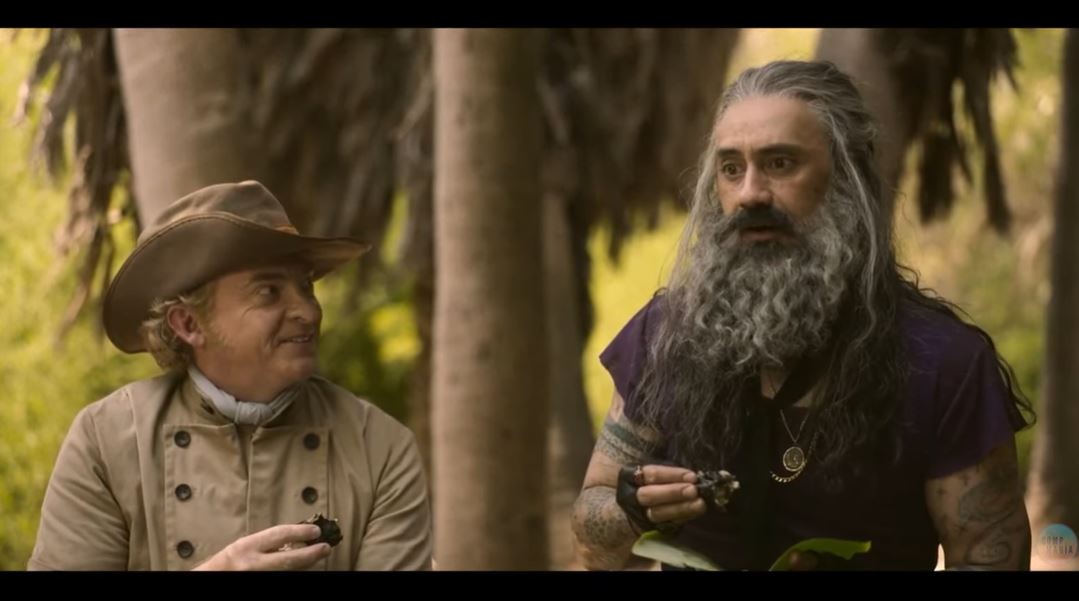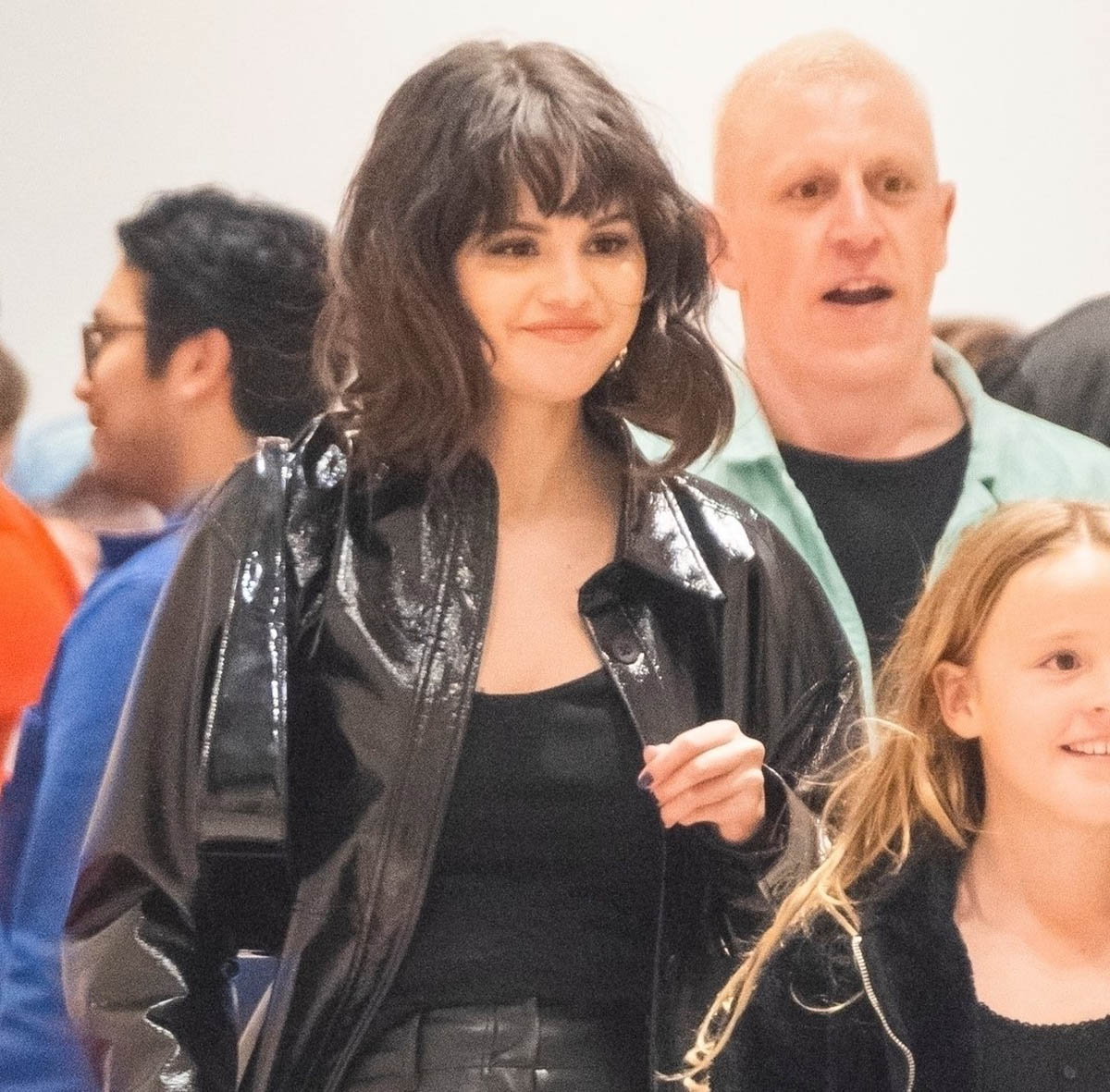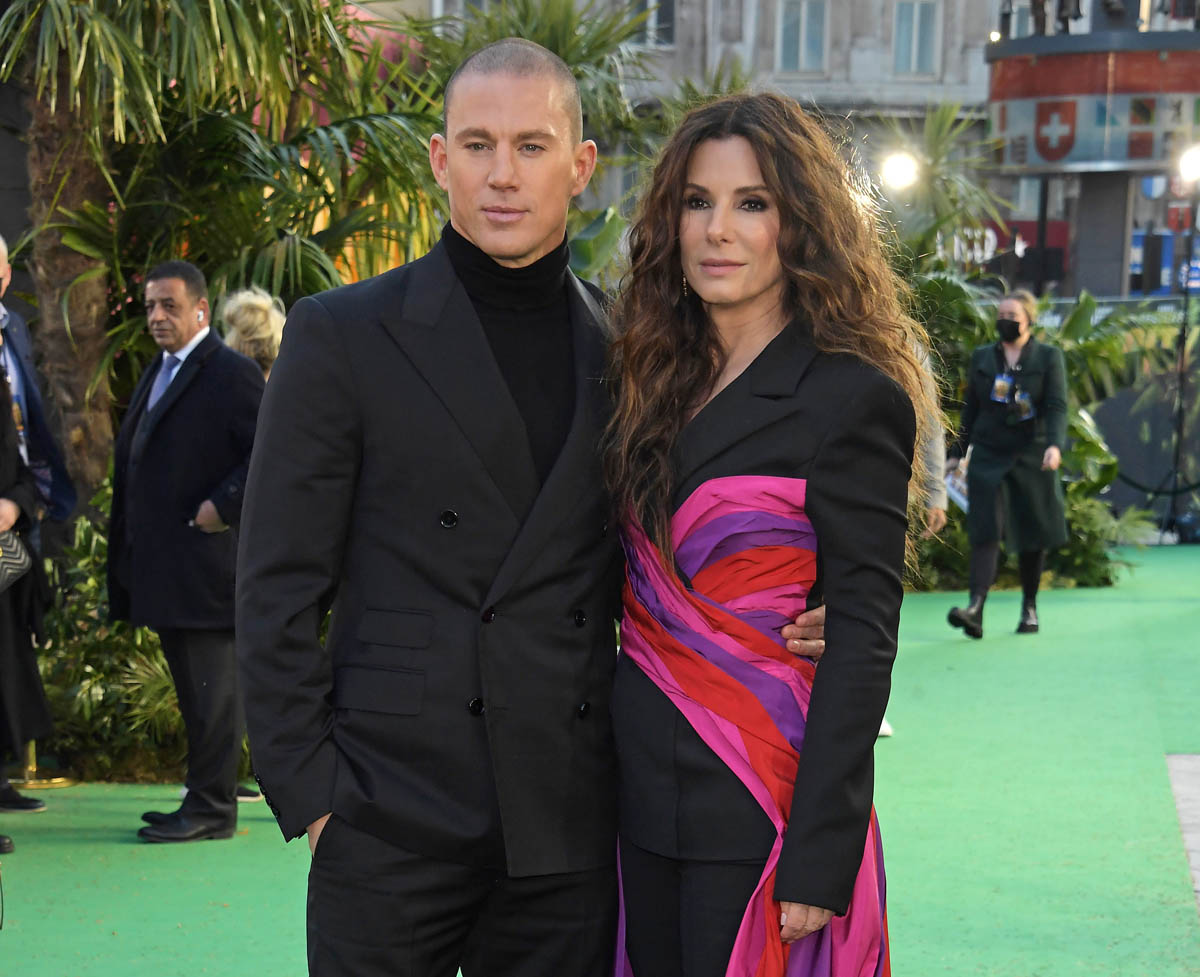Our Flag Means Death is a shot across the bow of queerbaiting



Spoilers
Our Flag Means Death is a Kiwi-quirky romp through pirate history, full of deliberate anachronisms and a mellower, more melancholic tone than one might expect of a “silly pirate show”. But it is also a wolf in sheep’s clothing, a show that starts as one thing, and becomes something else entirely by the end. Flag’s finale aired last week, capping off an extraordinary run from silly, almost inconsequential comedy to becoming one of the richest, most rewarding shows in recent memory. The really extraordinary part is how Flag never stops being silly and quirky and charming, but it slowly comes about until it morphs from “silly pirate show” to “gay pirate rom-com” and it does it in a way that heaves a canon ball straight through the heart of queerbaiting television shows that refuse to let same-sex characters fall in love. Because Stede Bonnet and Blackbeard, the protagonists of Flag? They fall in love. And they kiss. And they do it with a metaphorical eye on the camera, a veritable dare for anyone to withhold such romance in future.
Queerbaiting has a long and ugly history in cinema, but a stark recent example is Sherlock, which is happy enough to mine the subtext of Sir Arthur Conan Doyle’s detective stories but never actually commits to portraying Sherlock Holmes and John Watson as a romantic couple. In fact, in later seasons, Sherlock took on a downright nasty tone toward its own fans, using stand-in characters in the show to mock those who wanted Sherlock and John to just kiss already (or Sherlock and Moriarty, or Moriarty and John, really, that show is rife with latent homoeroticism). Sherlock flirts with queerness without committing to it, and worse, it punishes fans who long for explicit queer representation on screen. Another side of queerbaiting is the dreaded “bury your gays” trope, in which a character, often already queer-coded in the text, comes out only to be immediately killed off. See also: Castiel on Supernatural, and Lexa on The 100.
It's into this well-established practice that Flag ignites a slow-burn romance between Stede (Rhys Darby) and Blackbeard, aka Ed Teach (Taika Waititi). At first, Flag builds up Blackbeard as a pirate boogeyman, then reveals him to be a burnt-out man looking for a chance to escape his own reputation. Stede, in no way suited to the pirate life, strikes Ed as interesting with his fine clothes and many books and refined manners. Ed finds everything about Stede fascinating, though his interest is tempered by plans to steal Stede’s ship out from under him. Flag is never doing just one thing, which makes it especially easy for the show to sneak in the romance under the jokes and the contrasting melancholia that stems from Stede and Ed’s relative dissatisfactions. Stede craves belonging and love, but he is plagued by guilt and self-doubt, and Ed thinks of himself as “the kraken”, carrying guilt from a violent incident in his youth. Both men are riddled with self-loathing, which is common ground they discover despite their disparate backgrounds.
Flag uses this common ground and the instantaneous mutual appreciation Stede and Ed form to build their romance in stages. First, there is flirty banter and a classic “let me get that” bit, a scene in which Lucius (Nathan Foad) serves as the audience stand-in, noticing the chemistry between Stede and Ed and exclaiming, “Oh my god, this is happening!”
https://www.youtube.com/watch?v=UdhD7icZQRc
He is also the character most invested in Ed and Stede’s relationship, though decades of queerbaiting have conditioned audiences not to count on Lucius’s, er, shipping of his captain(s) to amount to anything tangible. But these moments keep popping up between Stede and Ed, from flirty fencing on the ship to romantic moments in the moonlight:
At the same time, though, the two men are also building a real friendship, which plays into typical “bromance” representation, and feeds into the audience’s trained expectation to not see an explicit gay romance depicted on screen, even when all the signs are there that, as Lucius says, “this is happening”. Flag balances these two impulses delicately, never undercutting the notion that Stede and Ed are two men who genuinely like one another, who do become friends, but who also fall in love with one another at the same time. The moment that Stede tells a self-loathing Ed, “I’m your friend,” is sweet and sincere…and staged in candlelight.
But Stede and Ed aren’t the only ones having a queer romance aboard the Revenge. The murderous Black Pete (Matthew Maher) falls for Lucius; non-binary Jim (Vico Ortiz) and Oluwande (Samson Kayo) grow from friends to something more; and it is heavily implied that Izzy Hands (Con O’Neill), Blackbeard’s right-hand man, is in love with his boss, and thus jealous and resentful of Stede. Flag depicts several different queer relationships in various phases and forms, and even as these other relationships play out unambiguously, the central romance between Stede and Ed continues to walk the fine line between latent and explicit representation. It’s not done with a wink, though, the tension of Stede and Ed’s relationship is that these are two men who are both emotionally stunted, and who have never experienced real love before. Because of this, understanding dawns slowly for them, and so it does for the audience as we are never given more information than Stede and Ed have of their own feelings.
But they do get there, eventually, and that is when Stede and Ed’s relationship becomes explicit, and Flag reveals that it was a gay pirate rom-com all along. And for a moment, it is joyous, as Stede and Ed share their first kiss, which is awkward and all the more charming for it.
Queerbaiting will look even worse now, in the wake of Flag. It’s not just that Stede and Ed kiss, it’s how exquisitely the show builds to that moment, and what comes after that really makes Flag special. Because as the early episodes established, despite the silliness of the style and premise, Flag is a darker show than one expects. And while it takes vast liberties with the period, Flag hits the historical highlights of Stede and Ed’s relationship, right up to Ed stealing Stede’s ship and marooning his crew. It’s just that Flag frames these events as the actions of a broken-hearted man, as Ed believes Stede has abandoned him. In fact, Flag even reframes Blackbeard’s famous Jolly Roger of a skeleton stabbing a bleeding heart as proof of his hurt and how he is lashing out in anger. In reality, Blackbeard never flew that standard, it was a later invention, but Flag roots that image in its storytelling, as evidence of Ed returning to his Blackbeard persona.
At the same time, Stede embodies the show’s central metaphor of a lighthouse, seen standing at attention, one hand raised like a torch, signaling to his marooned crew that he’s come back for them.
As Ed warns early on, lighthouses are to be avoided, they’re warning signs of unseen danger ahead. Flag revels in the meet cute and the slow burn of Stede and Ed’s relationship, and the careful buildup of their feelings makes the acknowledgment of their love all the more satisfying. But in its final episodes, Flag takes a darker turn, suggesting that though Stede and Ed are happier together, they still have the problems and struggles they had before they met. Ed still believes he is a monster unworthy of “fine things” like love, Stede is still haunted by childhood trauma and poor self-esteem. Stede and Ed may love one another, but they can’t fix each other, and Flag does not end with a joyous couple ruling the high seas together. But before the heartbreak, there is the romance, one Our Flag Means Death fully embraces and depicts with sincerity and care. The next show to fall back on queerbaiting can walk the plank, Our Flag Means Death has raised the bar for depicting queer love stories on screen.
Our Flag Means Death is streaming in its entirety on HBO Max.

